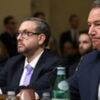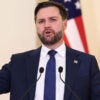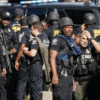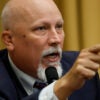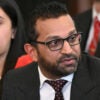ISIS has issued a warning to its members about their use of social media. A new directive from the group’s leaders, first reported by the Financial Times, warned against the dangers presented by metadata and other information contained in digital postings.
A new ISIS hashtag has appeared in Twitter in recent weeks, Himlat Takteem Ialami—the media restraint campaign. And an instruction manual in online behavior was distributed to ISIS members, a copy of which was seen by reporters of the FT. It reads in part:
“A number of security gaps have appeared that have benefited the enemy and have helped expose the identities of some brothers or identify some sites used by the mujahideen with ease,” the manual begins. The information revealed in digital communication, it explains, is the kind of “data that could turn your hair gray.”
Data revealed by Twitter, YouTube and Facebook postings comes in many forms—from more obvious information about individual identities and landscape and urban geography in photos to encoded data from email accounts, servers and location of signals. All this has helped make the air campaign against ISIS more effective.
Also, by destroying the telecommunications infrastructure, the U.S.-led air campaign has forced ISIS in Syria to rely on non-secure routers that boost signals, making communications easy to intercept for intelligence agencies.
These problems have created difficulties for the group’s brutal but effective social media campaign, through which fighters have posted images with their victims—a sick but key element in attracting foreign fighters and supporters abroad.
Coinciding with the realization that social media can backfire, ISIS has launched a more traditional propaganda effort through a digital magazine, Dabiq. Ironically, the magazine recently sought to engage in the policy debate here in Washington by “persuading” U.S. foreign policymakers that continuing the air campaign in Iraq and Syria is not in the U.S. national interest.
The article, “Reflections on the Final Crusade,” argues that by fighting ISIS, “We find that two Western leaders, Bush and Obama, are determined to do everything possible to strengthen Persian and Russian influence in the Middle East.”
Whether to shut down ISIS’ social media access has been a matter of counterterrorism debate. The information provided by ISIS fighters themselves is a treasure trove for U.S. and British intelligence agencies and has aided the air campaign in Iraq and Syria. ISIS is not the first “army” to experience the dangers of selfies posted from the front lines, which is why some experts argue that shutting down ISIS social media access may not be in the interest of those trying to defeat them.


